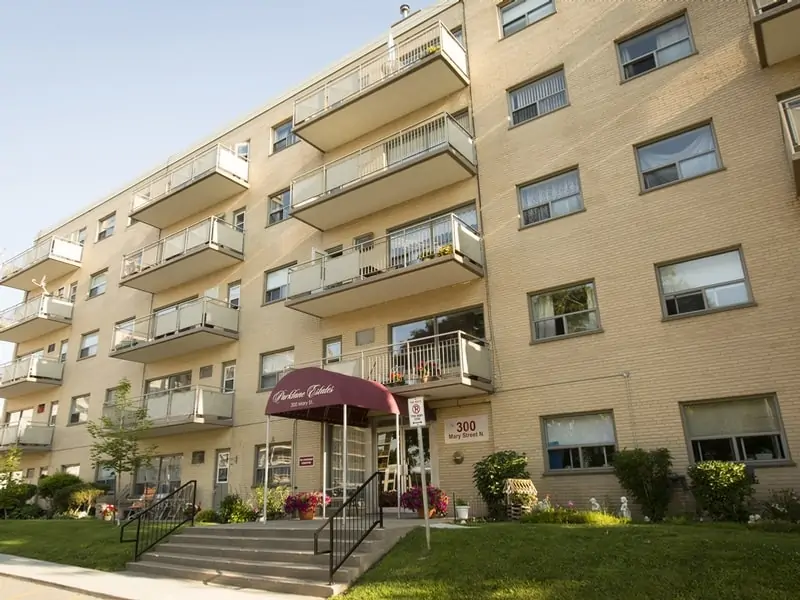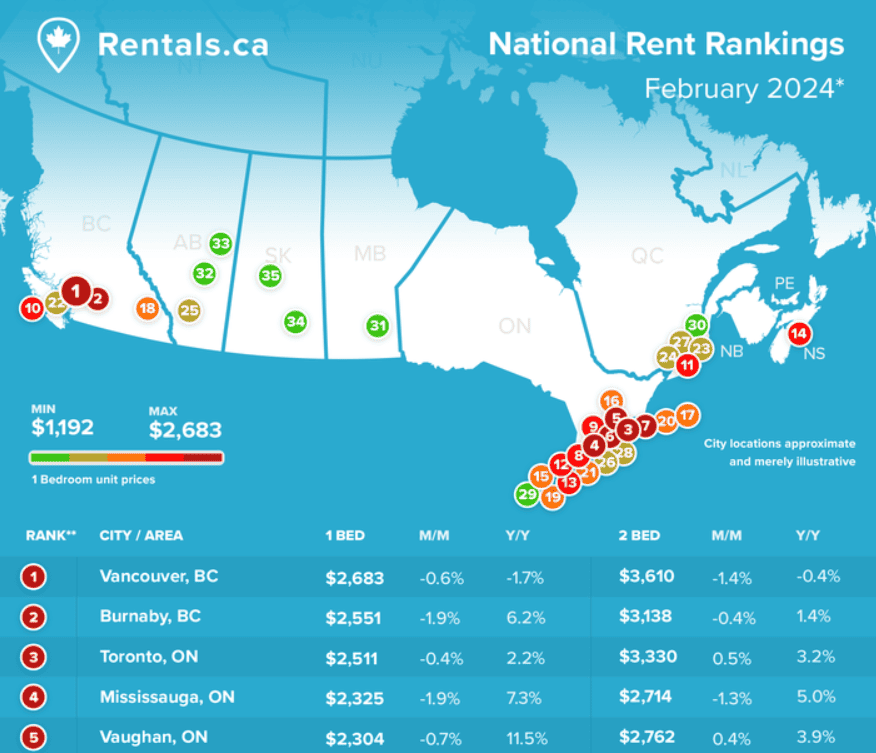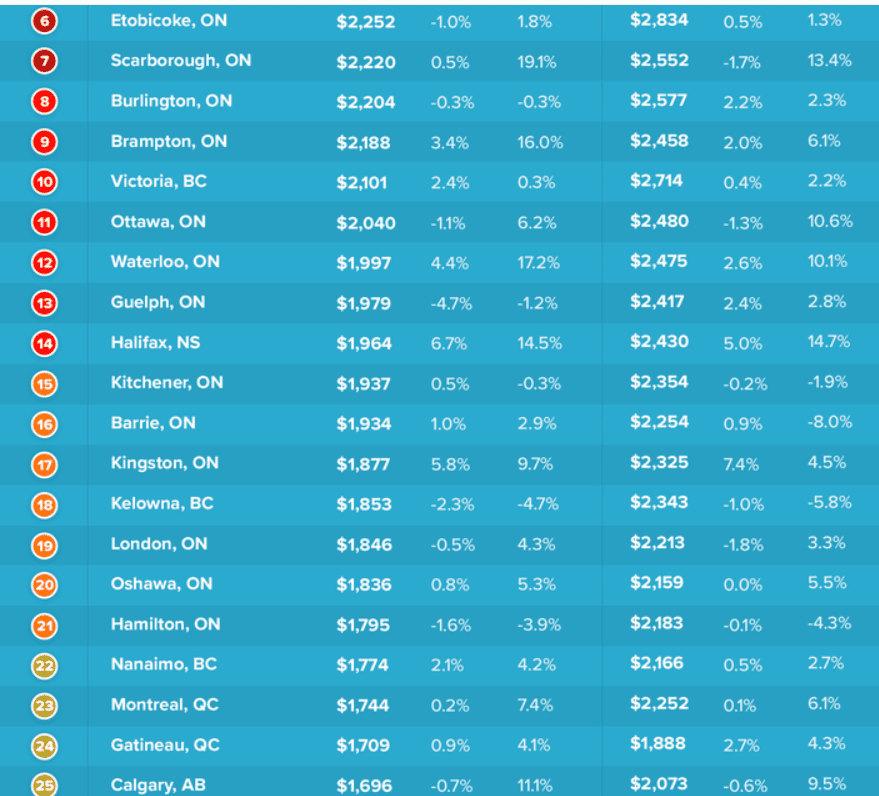Oshawa rents up more than five per cent year-over-year; rent up 10 per cent nationally – report
Published February 14, 2024 at 2:39 pm

Average asking rent for all property types increased by 10.0 per cent annually to $2,196, reaching another record high in January 2024, according to the latest National Rent Report from Rentals.ca and Urbanation.
Growth in Oshawa was a bit more subdued, with average one-bedroom units up 5.3 per cent to $1,836 per month and 5.5 pr cent to $2,159 for two-bedroom apartments.
Oshawa ranked 20th for one-bedroom apartments and 22nd for two-bedroom units.
The national increase, according to the report, reflects a 0.8 per cent month-over-month rise, pushing the annual rate of rent growth to a four-month high. Compared to January 2020, before the onset of COVID-19 lockdowns, average asking rents have increased 20 per cent, translating to a $373 per month increase.
“The Canadian rental market began 2024 where it left off in 2023, with rents surging to new highs,” said Shaun Hildebrand, President of Urbanation. “However, an underlying narrative has emerged between softening rents in expensive markets and strengthening rents in more affordable markets. These shifts in demand are symptomatic of a worsening supply situation for rentals in Canada.”
Those shifts in demand will likely mean a bump is coming to markets with comparatively affordable rental units, such as Hamilton and Oshawa.
Among different property types, rental apartments saw the most substantial growth, with average asking rents increasing by 13.5 per cent over the past year to $2,107. Condominium rentals followed, experiencing a 4.1 per cent annual increase to average rents of $2,372 in January.
Meanwhile, house rentals saw a 5.6 per cent year-over-year increase, reaching an average of $2,352. One-bedroom apartment rents saw an increase of 12.6 per cent annually, reaching a record average of $2,146.
Similarly, two-bedroom apartments saw an 11 per cent surge in asking rents to an average of $2,334, while three-bedroom rents averaged $2,638, marking an 11.6 per cent increase from the previous year. Studio apartments also experienced strong growth, with rents rising by 11 per cent annually to reach an average of $1,595.
Regional disparities in rent growth were evident, with Nova Scotia, Alberta, and Saskatchewan leading with annual rent inflation rates of as much as 19.1 per cent.
British Columbia maintained its position as the most expensive province, with average asking rents reaching $2,529 for purpose-built and condominium apartments in January, albeit with a slower annual growth rate of 2.3 per cent.
Vancouver and neighbouring Burnaby led all markets in rental prices, with average rents for one-bedrooms at $2,683 (Vancouver) and $2,551 (Burnaby) and at $3,610 (Vancouver) and $3,138 (Burnaby) for two-bedroom units.
Toronto, Mississauga and Vaughan rounded out the top five.
Vancouver was also Canada’s most expensive city overall, despite a 3.0 per cent decrease in rents from the previous year, with an average asking rent of $3,055 for all property types.
Edmonton surpassed Calgary in rent inflation, posting a 17.1 per cent annual increase to an average of $1,479 for purpose-built and condominium rentals.
Toronto saw a modest 2.4 per cent increase in rents over the past year, reaching $2,830 on average for all property types.
The National Rent Report charts and analyzes monthly, quarterly and annual rates and trends in the rental market on national, provincial, and municipal levels across all listings on the Rentals.ca network for Canada.
The data is analyzed and the report is written by Urbanation, a Toronto-based real estate research firm providing market analysis and consulting services since 1981.








